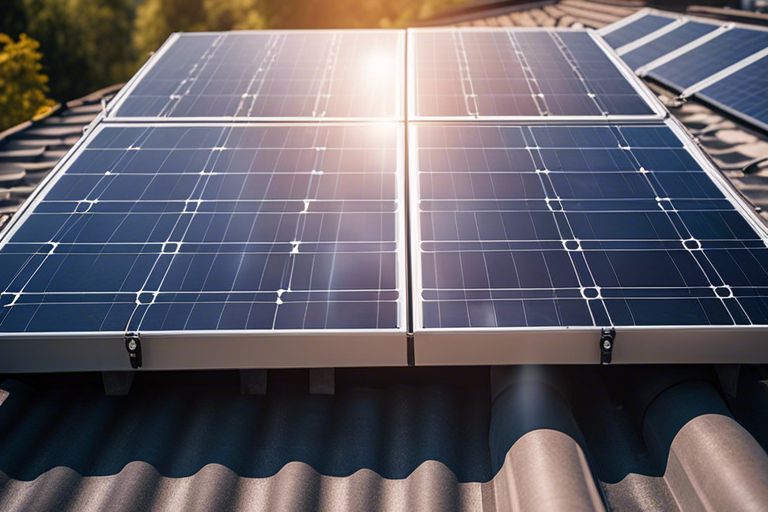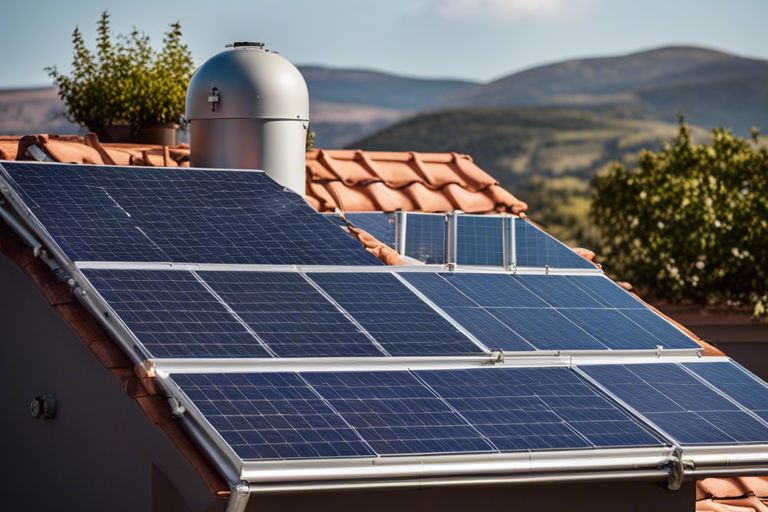With the rising popularity of solar energy, you may be wondering if making the switch is financially wise when you already have a gas-powered system in place. In this article, we will probe into the intricacies of solar energy and gas usage to help you understand if investing in solar power is a beneficial choice for your home. By the end, you’ll have a clear picture of whether going solar is a smart and cost-effective decision for you.
Key Takeaways:
- Energy Independence: Integrating solar with gas can provide a more reliable and versatile energy system, reducing dependence on the grid.
- Financial Savings: While gas may be a cheaper energy source initially, the long-term savings from solar energy can outweigh this cost in the future.
- Environmental Impact: Using solar energy alongside gas can significantly reduce carbon emissions and contribute to a more sustainable and environmentally friendly energy mix.
The Benefits of Solar Energy
A Have solar, should I get an Electric Dryer or stay with Gas? debate often arises when considering the benefits of solar energy.
Environmental Advantages
An environmentally friendly choice, solar energy produces electricity without emitting harmful greenhouse gases into the atmosphere. By harnessing the power of the sun, you can significantly reduce your carbon footprint and contribute to a cleaner, more sustainable future for generations to come.
Cost-Effective in the Long Run
On the financial front, solar energy can prove to be a cost-effective option in the long run. While the initial investment may seem substantial, the savings on your electricity bills over time can outweigh the upfront costs. Additionally, with various incentives and rebates available for solar panel installation, you can recoup some of your expenses sooner than you think.
Advantages such as increased home value, energy independence, and potential savings on utility bills make solar energy a compelling choice for those looking to make a positive impact on the environment and their finances.
The Drawbacks of Solar Energy
High Upfront Costs
Any investment in solar energy comes with high upfront costs. While solar panels can save you money in the long run by reducing your electricity bills, the initial expense of purchasing and installing the system may be prohibitive for some homeowners. This can make it challenging to justify the switch to solar, especially if you already have a reliable gas-powered energy source.
Intermittent Energy Source
One drawback of solar energy is that it is an intermittent energy source, meaning it relies on sunlight to generate electricity. This can be a limitation, particularly during cloudy days or at night when solar panels are not producing power. As a result, you may need to supplement your solar energy system with a backup power source, such as gas, to ensure a consistent supply of electricity.
Any disruptions in sunlight, such as inclement weather or shading from trees or buildings, can also impact the efficiency of your solar panels. This variability in energy production can make it challenging to rely solely on solar power, especially if you require a consistent and uninterrupted energy supply.
Upfront planning and consideration of these drawbacks are imperative when deciding whether solar energy is worth it for your home, especially if you already have a gas-powered energy source that meets your needs reliably.
The Advantages of Gas Energy
Reliable and Consistent Supply
Unlike We went solar and here are the real numbers – Joshua Tauberer, gas energy offers a reliable and consistent supply of power to your home. Energy generated from gas is not dependent on weather conditions or daylight hours, ensuring that you have electricity whenever you need it. This consistency is particularly beneficial during times of high energy demand or inclement weather when solar energy may be less reliable.
Lower Upfront Costs
Any upfront costs associated with installing gas equipment are typically lower than those of a solar energy system. Gas appliances are widely available, and the installation process is usually straightforward, resulting in lower initial investment compared to solar panels. To further save on costs, you may also have the option to finance your gas equipment through your energy provider or a third-party lender.
The Disadvantages of Gas Energy
Environmental Concerns
All energy sources have their drawbacks, and gas is no exception. One of the major disadvantages of relying on gas energy is its environmental impact. The extraction, transportation, and combustion of natural gas release greenhouse gases such as carbon dioxide and methane into the atmosphere, contributing to climate change. Additionally, the drilling process can lead to habitat destruction and water pollution, posing a threat to local ecosystems.
Volatile Pricing
Volatile pricing is another significant drawback of gas energy. Gas prices can fluctuate unpredictably due to various factors such as supply and demand, geopolitical events, and natural disasters. This volatility can make it challenging to budget your energy expenses effectively, as you may be at the mercy of market forces that are beyond your control.
This means that your monthly gas bills could vary widely, making it difficult to plan your finances with certainty. Additionally, sudden price spikes can significantly impact your household budget, leading to financial stress and uncertainty.
Comparing Solar and Gas Energy
Now, let’s compare the energy efficiency of solar power and gas energy.
Energy Efficiency
Comparing Solar and Gas Energy Efficiency
| Energy Source | Efficiency |
| Solar Power | Converts sunlight into electricity with an average efficiency of 15-22%. |
| Gas Energy | Converts natural gas into electricity with an average efficiency of 30-50%. |
Concerning energy efficiency, gas energy generally has a higher efficiency rate compared to solar power. Gas energy can convert natural gas into electricity more efficiently than solar panels can convert sunlight into electricity.
Cost Comparison
Cost Comparison of Solar and Gas Energy
| Energy Source | Cost |
| Solar Power | Higher initial installation cost, but lower operational costs in the long run. |
| Gas Energy | Lower initial installation cost, but higher operational costs due to the ongoing cost of natural gas. |
Cost-wise, solar power may have a higher upfront cost for installation, but it can lead to lower operational costs over time. On the other hand, gas energy has a lower initial installation cost but entails higher operational costs in the long term due to the continuous need for natural gas supply.
Plus, when considering the environmental impact, solar power has the added benefit of being a renewable energy source that does not emit greenhouse gases during operation, unlike gas energy.
Factors to Consider When Deciding Between Solar and Gas
To make an informed decision between solar and gas for your energy needs, there are a few key factors you should take into account. By considering these factors carefully, you can determine which option aligns best with your specific situation and preferences.
Your Location and Climate
With solar energy, your location and climate play a crucial role in determining its effectiveness. If you live in an area that receives ample sunlight throughout the year, solar panels can be highly beneficial. However, if your location experiences frequent cloud cover or limited sunlight, the efficiency of solar panels may be reduced, making gas a more reliable option.
This factor is vital to consider as it directly impacts the amount of energy you can generate from solar panels and the overall cost-effectiveness of this renewable energy source.
Your Energy Needs and Usage
The size of your household, your daily energy consumption, and your overall energy needs are vital considerations when choosing between solar and gas. Solar panels are a sustainable option for households with high energy usage, as they can help offset electricity costs over time. On the other hand, if your energy consumption is relatively low, relying on gas for your energy needs may be a more practical choice.
Energy needs and usage are crucial factors to evaluate when deciding between solar and gas, as they can impact your monthly expenses and the sustainability of your chosen energy source.
Local Incentives and Policies
The availability of local incentives, rebates, and policies can also influence your decision to opt for solar or gas. Some regions offer financial incentives for installing solar panels, making this renewable energy source more cost-effective in the long run. Conversely, certain policies or regulations may favor gas infrastructure and usage, affecting the feasibility of relying on this traditional energy source.
The local incentives and policies in your area can significantly impact the affordability and practicality of both solar and gas energy options. It is vital to research and consider these factors to make an informed decision that aligns with your energy goals and budget.
Final Words
Hence, if you have gas as a source of energy in your home, investing in solar panels can still be worth it. Not only can solar power reduce your electricity bills and provide a backup energy source, but it also allows you to contribute to a cleaner environment and potentially increase the value of your property. So, even if you have gas, considering solar energy for your home can be a smart and sustainable choice.
FAQ
Q: Is it worth it to go solar if you already have gas?
A: Yes, solar can still be worth it even if you have gas. By installing solar panels, you can lower your electricity bills and reduce your overall energy costs, even if you still use gas for other appliances.
Q: How does having gas impact the benefits of solar energy?
A: Having gas does not negate the benefits of solar energy. Solar can still help you save money on your electricity bills and reduce your carbon footprint, regardless of whether you use gas for heating or cooking.
Q: Can I use solar energy to power my gas appliances?
A: While solar energy is typically used to power electrical appliances, you can still use solar to offset the electricity usage of your gas appliances. This can help further reduce your overall energy costs.
Q: Will installing solar panels increase the value of my home if I have gas?
A: Yes, installing solar panels can increase the value of your home even if you have gas appliances. Solar panels are seen as a valuable upgrade that can attract eco-conscious buyers and potentially increase your home’s resale value.
Q: Are there any incentives for going solar if I already have gas?
A: Yes, there are still incentives available for installing solar panels, such as federal tax credits and local rebates, even if you have gas. These incentives can help offset the upfront costs of going solar and make it a more cost-effective investment.



